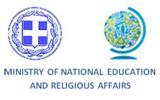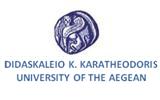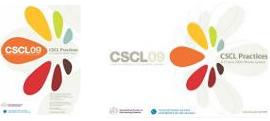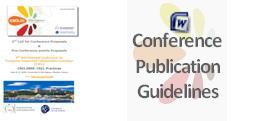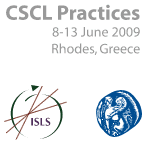
Program
Pre-Conference Events Program
Workshop:
Scripted vs. Free CS Collaboration: Alternatives and Paths for Adaptable and Flexible CS Scripted Collaboration
Stavros Demetriadis, Aristotle University of Thessaloniki, Greece, sdemetri@csd.auth.gr
Yannis Dimitriadis, University of Valladolid, Spain, yannis@yllera.tel.uva.es
Frank Fischer, University of Munich, Germany, frank.fischer@psy.lmu.de
Theme and Scope
Research has consistently emphasized that free collaboration conditions may fail to engage all team members in productive learning interactions. Scripted collaboration has been proposed as a method for triggering peer interaction and creating a meaningful learning situation for all learners.
The CSCL community is currently exploring systematically the issue of collaboration scripting. However, there are also voices calling for attention on the issue of sacrificing the “fun and creativity of free collaboration” to attain effectiveness. Computer-supported scripting has been criticized for its loss of flexibility and also the danger of “over-scripting” the collaborative activity. The need has also been emphasized to differentiate between flexibility loss that is due to pedagogical design and undesired constraints of computer-based scripting techniques. At the same time, suggestions for more adaptive and intelligent forms of CSCL scripting are already on the table. Against this background, we argue that a significant issue for the CSCL community is to productively reflect on existing research regarding the pros and cons of scripted vs. free collaboration.
The goal of the workshop is to be an informal meeting which facilitates the dissemination and advancement of knowledge and expertise in this field. It is intended for researchers and educators who have a strong interest on the issue of how to improve CSCL practice and outcomes through the flexible implementation of methods for structured support and guidance of collaborating students. The research question is crucial for people who approach the issue from different but complementary perspectives (learning scientists, educators, engineers/computer scientists, instructional designers, the LD community).
The workshop will focus on (but is certainly not limited to) the following topics:
- Adaptable and flexible forms of guidance and support in CS collaboration activities.
- Theoretical issues on analyzing and advancing CS scripted collaboration.
- Methods and tools for the design and operationalization of CSCL scripts.
- CSCL scripts in everyday teaching; reflection on experiences from practice.
- Interaction analysis techniques to inform the adaptable and flexible behavior of CSCL systems.
- Intelligent forms of tutoring/scaffolding/scripting in CSCL systems.
- User and group models to promote flexible adaptation of CSCL script implementation.
We welcome papers that describe speculative ideas, work in progress, and discussions of important issues.
Format
The workshop will be a full day workshop with three sessions: two morning sessions and one afternoon session. Papers will be made available before the workshop to all participants so that they will have time to review the material. During the morning sessions all authors will be given time to present their work and answer other participants’ questions (it is possible to dedicate one morning session to hands-on activities). In the afternoon session participants will be assigned to working groups and will be asked to reflect on key issues and ideas raised by the presented papers.
Details - Submission
Details for the workshop, including submission, are given at the workshop website:
http://mlab.csd.auth.gr/cscl2009/sfc-workshop.htm
Programme Committee
Rafael Calvo, University of Sydney, Australia (invited)
Pierre Dillenbourg, University of Geneva, Switzerland (invited)
Stavros Demetriadis, Aristotle University of Thessaloniki, Greece
Yannis Dimitriadis, University of Valladolid, Spain
Frank Fischer, University of Munich, Germany
Andreas Harrer, University of Duisburg, Germany (invited)
Jeremy Roschelle, Stanford Research Institute, USA (invited)
Patti Schank, Stanford Research Institute, USA (invited)
Pierre Tchounikine, University of Main, France (invited)
Thrasyvoulos Tsiatsos, Aristotle University of Thessaloniki, Greece
Armin Weinberger, University of Twente, Holland (invited)
(the PC list is not closed yet – others will be invited too)
Important dates
- Submission deadline: April 6, 2009
- Acceptance notification: May 8, 2009
Workshop Date: Tuesday, June 9th, 2009
